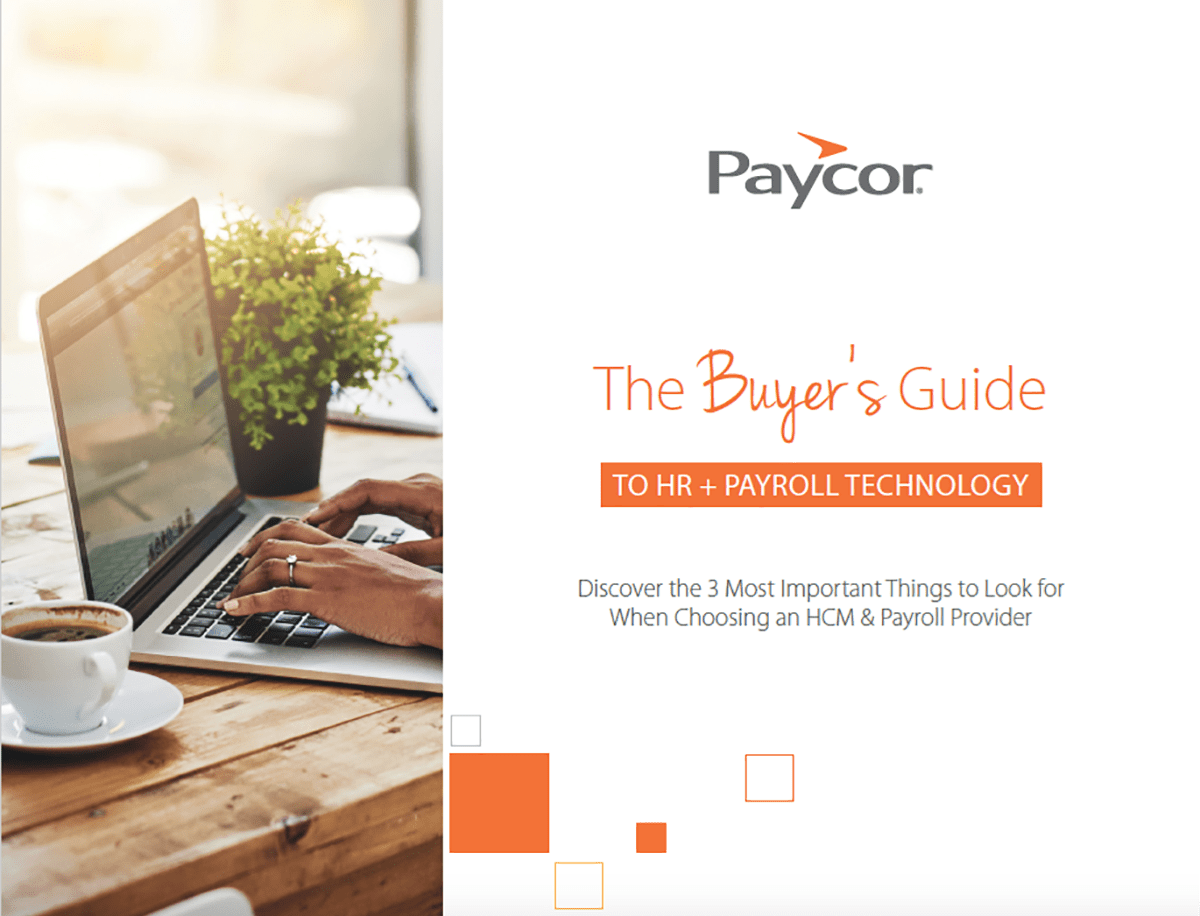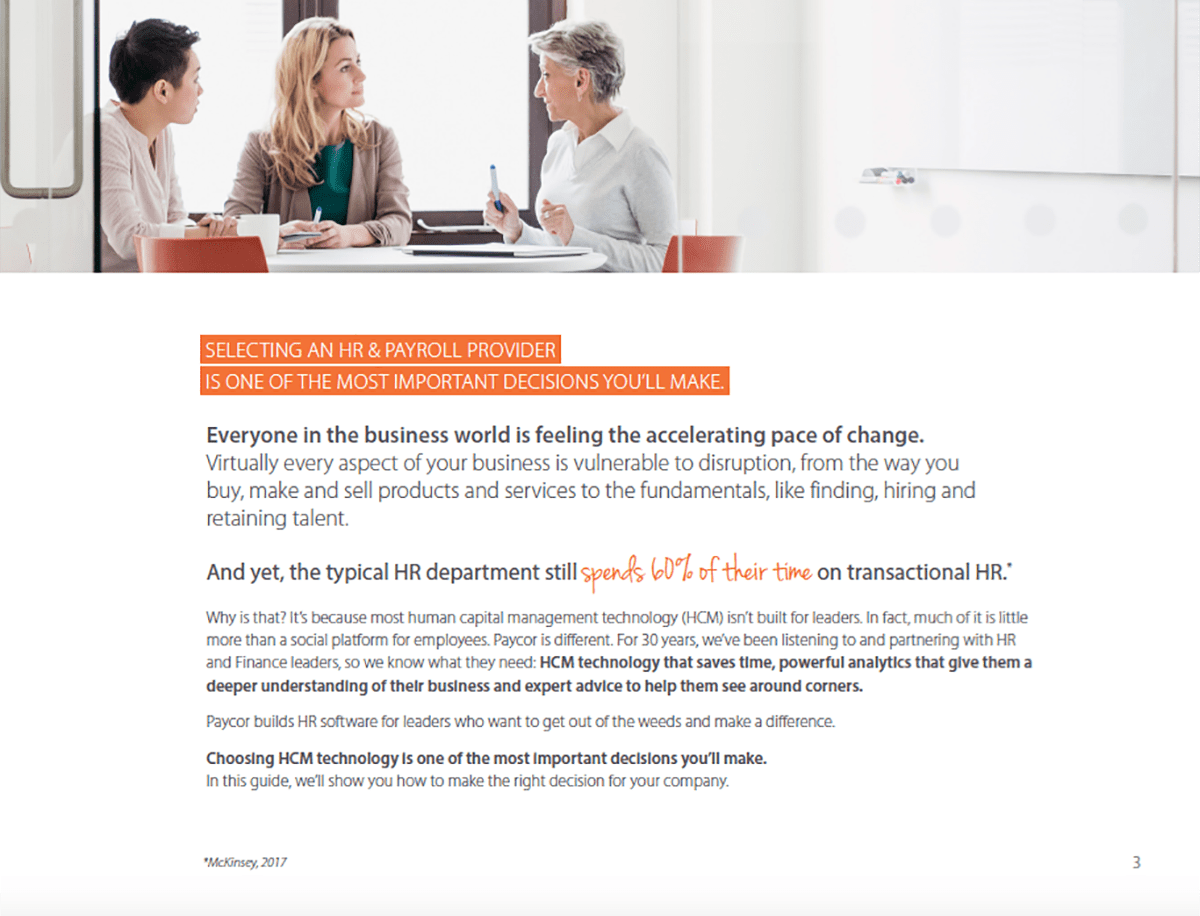
Move from Administrative to Strategic HR
The typical HR department spends 60% of their time on transactional HR. HCM technology saves HR leaders time, labor costs and frustration. However, with the number of options available, it’s not always easy to choose what will work for your business. This buyer’s guide is designed to help.
Identify the key features to evaluate and questions to ask about an HCM system
- Security & System Requirements
- Recruiting, Onboarding, Benefits and Compliance
- Usability & Support












